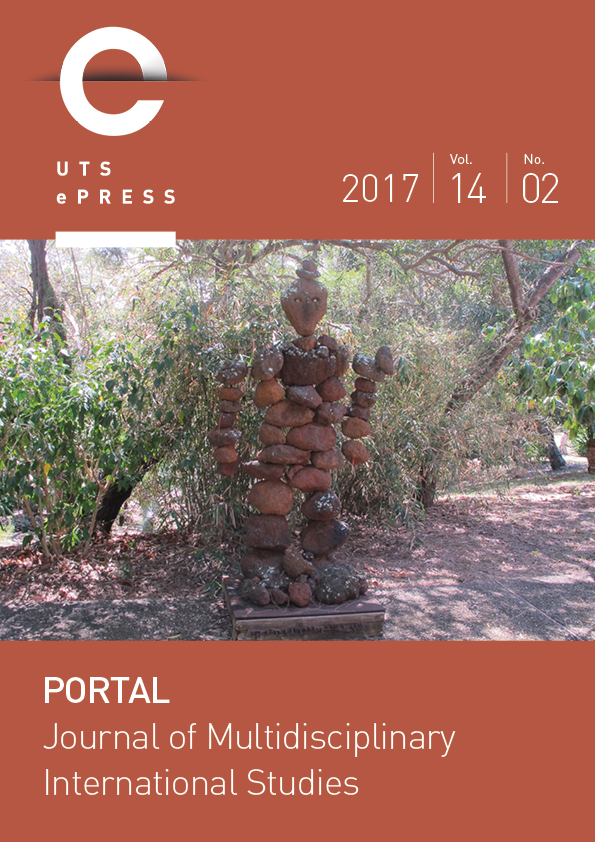Population, Reproduction and IVF in New Caledonia: Exploring Sociocultural and Caring Dimensions of Sustainable Development
Main Article Content
Abstract
Both sustainability and sustainable development have multiple meanings that are underpinned by diverse normative visions. Nonetheless, sustainable development is currently centre-stage at the global level. The main goal of this paper is to critically examine these important concepts, in particular their social and cultural dimensions, and to make a conceptual offering: that of ‘caring sustainable development.’ This way of thinking about sustainable development aims to grapple in a situated way with the different normative underpinnings of sustainability in order to support the building of a common future. The paper briefly examines populations, reproduction (both biological and sociocultural) and human in vitro fertilization (IVF), as important sites for thinking about caring sustainable development. It draws on research in New Caledonia examining which populations and which sociocultural social practices are encouraged or sustained, or not. It finds that historically there are many examples of things and people being neglected and not cared for, or being encouraged to ‘develop’ in problematic ways. By contrast, recent practices associated with IVF suggest ways forward that would enable caring sustainable development.
Résumé
La durabilité et le développement durable ont des significations multiples, qui sont sous-tendues par diverses visions normatives. Néanmoins, le développement durable occupe actuellement une place centrale sur le plan mondial. Le but principal de cet article est d’examiner de manière critique ces concepts importants, en particulier leurs dimensions sociales et culturelles, et de faire une contribution conceptuelle qui est celle de la notion du ‘care dans le développement durable.’ Cette façon de penser au développement durable vise à aborder ces différents fondements normatifs, de façon localisée, pour soutenir la construction à long terme d’un futur commun. L’article examine ensuite brièvement les populations, la reproduction (à la fois biologique et socio-culturelle) et la fécondation humaine in vitro (FIV), en tant que sites importants pour penser à l’idée du ‘care’ dans le développement durable. Il s’appuie sur la recherche en Nouvelle Calédonie pour analyser quelles populations et quelle pratiques socio-culturelles sont encouragées voire soutenues ou pas. L’article trouve que du point de vue historique, il y a de nombreux exemples de choses et de personnes qui ont été négligées et dont on ne se préoccupait pas, ou alors qui étaient encouragées à se ‘développer’ de manière problématique. En revanche, les pratiques récentes associées à la FIV suggèrent des moyens d’aller de l’avant qui permettraient de favoriser le ‘care’ dans développement durable.
Article Details
Section
For submissions from 31st March 2014 onwards, authors who submit articles to this journal for publication agree to the following terms:
a) Retaining Copyright and Granting Rights:
Authors retain copyright and grant the journal the right of first publication. The work is simultaneously licensed under a Creative Commons Attribution License, allowing others to share and adapt the work. Acknowledgment of the work's authorship and initial publication in this journal is required.
b) Non-Exclusive Distribution:
Authors may enter into separate, additional contractual arrangements for the non-exclusive distribution of the journal's published version of the work (e.g., posting to an institutional repository or publishing in a book). Acknowledgment of its initial publication in this journal is required.
c) Online Posting and Citation Advantage:
Authors are encouraged to post their work online (e.g., in institutional repositories or on their website) prior to and during the submission process. This may lead to productive exchanges and earlier and greater citation of the published work (See The Open Access Citation Advantage Service). If authors include the work in an institutional repository or on their website, they must acknowledge the UTS ePRESS publication with relevant details.
d) Creative Commons Attribution (CC-BY) License Awareness:
Authors should note that the CC-BY License permits readers to share (copy and redistribute) and adapt (remix, transform, build upon) the work for any purpose, including commercial use. Proper credit, a link to the license, and indication of any changes made must be provided. The manner of doing so must not suggest endorsement by you or your publisher.
For Volume 10 No 2 (2013) and earlier, the following copyright applied:
Authors submitting a paper to UTSePress publications agree to assign a limited license to UTSePress if and when the manuscript is accepted for publication. This license allows UTSePress to publish the manuscript in a specific issue.
Articles published by UTSePress are protected by copyright, with rights retained by the authors, who assert their moral rights. Authors control translation and reproduction rights to their works published by UTSePress. All rights are reserved worldwide by UTSePress, and downloads of specific portions are permitted for personal use only, not commercial use or resale.
For reprint or usage permissions, please direct inquiries to UTSePress via the journal's main editor, Dr. Nicholas Manganas at [portal.scholarly.journal@gmail.com]. Reprint permission requires acknowledgment of both UTSePress and PORTAL in the format advised by the journal editor.
